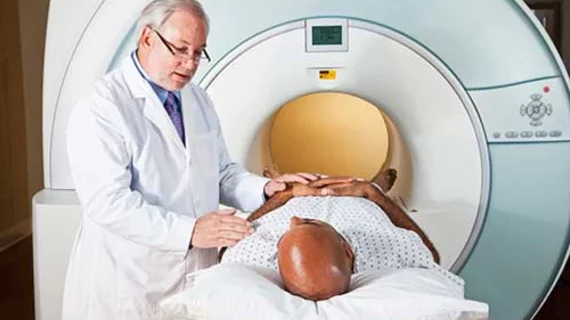Fluorinated contrast agents show 'strong potential' for MRI theranostics
Experts have developed a first of its kind fluorinated contrast agent that they believe will provide more detailed MR imaging and aid in the treatment of certain cancers.
Since fluorine is not present in human tissue, fluorine-based contrast agents have the potential to be more effective for identifying small tumors with great precision. Its use in contrast has been limited thus far, however, due to a lack of safe and water-soluble imaging agents with high fluorine contents and suitable relaxation properties.
Now, a group of researchers was able to develop a non-toxic fluorine-based agent with an acceptable safety profile.
“These 19F-MRI agents are based on an amphiphilic dendrimer bearing negatively charged fluorinated terminals, enabling high fluorine contents yet without fluorine–fluorine aggregation, leading to excellent relaxation characteristics and good water solubility for use in 19F-MRI,” researcher Sabrina Pricl, associate professor of chemical engineering and scientific director of the Laboratory of Molecular Biology and Nanotechnology at the University of Trieste in Italy explains.
The self-assembling 19F-MRI agent could also aid in cancer treatment, as its molecules can release therapeutics on site once a tumor has been detected, the experts add.
“Interest in the use of fluorine MRI with fluorinated imaging agents is growing,” Professor Pricl notes. “Being able to record and monitor the progress or regression of a tumour and at the same time continue to treat the disease is a real accomplishment in terms of therapeutic outcome and treatment endurance, which as a consequence are less invasive, toxic or harmful, while fully respecting patients.”
The fluorine-based system is said to outperform traditional hydrogen-based nuclear MR imaging in cancer detection. This is likely because water constitutes the majority of human body composition, while fluorine is not naturally present, making it more noticeable on imaging when administered as a contrast agent.
Thus far, the team has tested their agent only on mice, though they believe their work demonstrates the “strong potential for modular self-assembling dendrimers in the construction of imaging and theragnostic agents for biomedical applications.”
Learn more in the journal PNAS.

